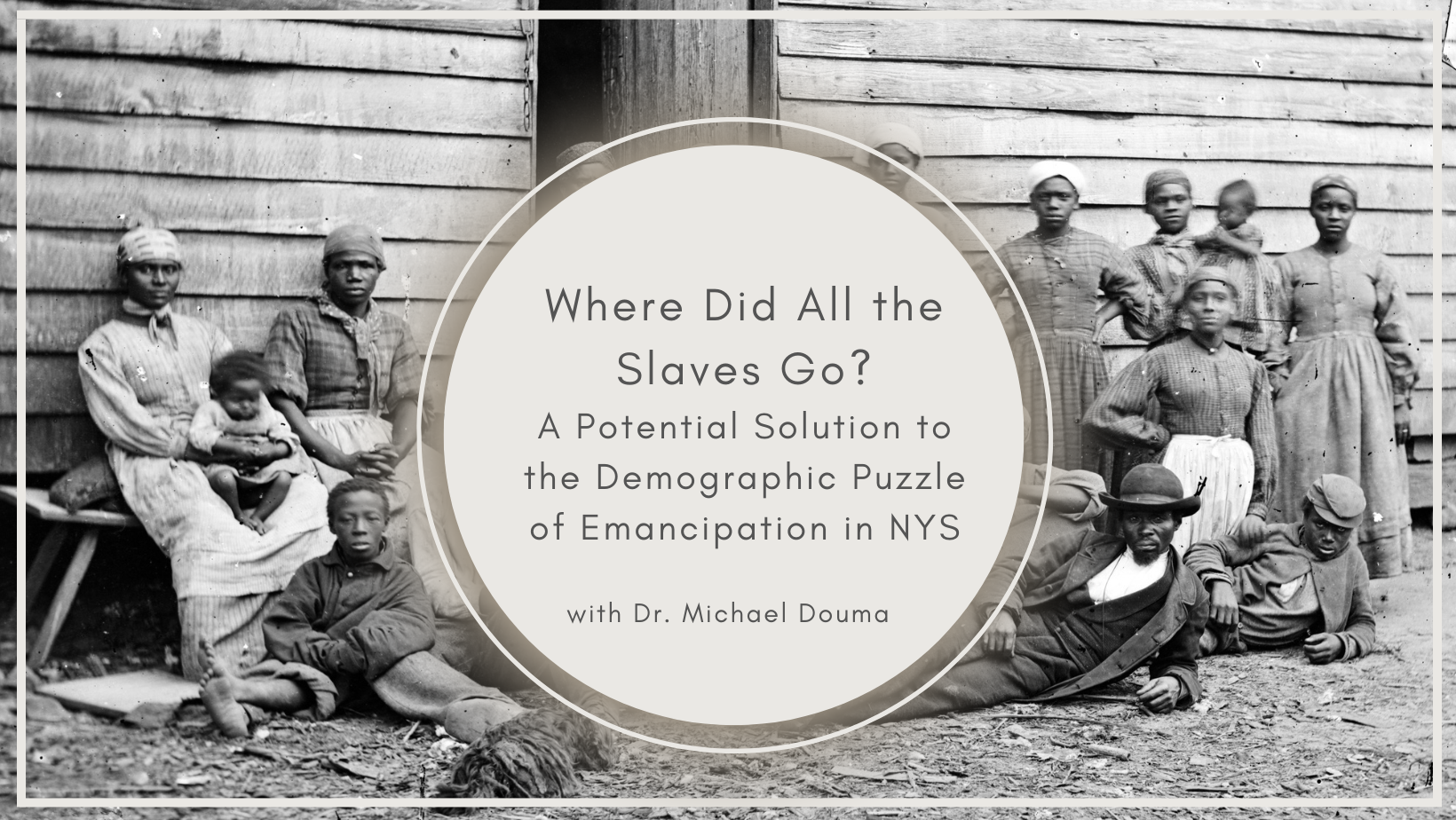
- This event has passed.
Where did all the Slaves Go? with Michael Douma
March 23, 2023 @ 6:00 pm - 7:00 pm
$8.00
This is a virtual program, presented on Zoom. A Zoom link will be sent to SCHS members before the presentation.
Join us for a virtual presentation by Georgetown Professor Michael Douma discussing a chapter from his forthcoming book, “The Slow Death of Slavery in Dutch New York.”
In Dutch New York, slavery died an agonizingly slow death. Douma’s book will be the first cultural, demographic, and economic history of slavery in Dutch New York. Douma points to the important influence of the Dutch in developing and maintaining slavery in NYS, arguing that to understand the history of slavery in New York, we need to recognize it as more distinctly Dutch, more profitable, more rural, and more enduring than has been previously recognized. Douma argues that Dutch attitudes about the utility and morality of slavery presented a major roadblock in attempts to end slavery in the state via gradual abolition. There continued a distinct Dutch type of slavery in eighteenth and early nineteenth century New York that is demonstrable culturally, economically, and
demographically. This was the largest non-English speaking form of slavery in American history, and it was much larger in extent, much more deeply rooted culturally, and much longer-
lasting than historians have previously recognized. Slavery was engrained in the culture of Dutch New York. This culture resisted the political and legal changes that ultimately brought about the
end of slavery in the state in 1827. In Dutch New York, slaveholders kept their enslaved persons longer and condemned the practice of slavery less than did English New Yorkers and most others
in the North.
Michael Douma is Associate Research Professor at Georgetown University. He has published 7 books and 19 scholarly articles. As an interdisciplinary historian, Douma’s work is influenced by scholars in fields as diverse as economics, folklore, and ethics. His historical research generally focuses on nineteenth century U.S. history including slavery and emancipation, the Dutch World, and
Philosophy and Methods of History.
